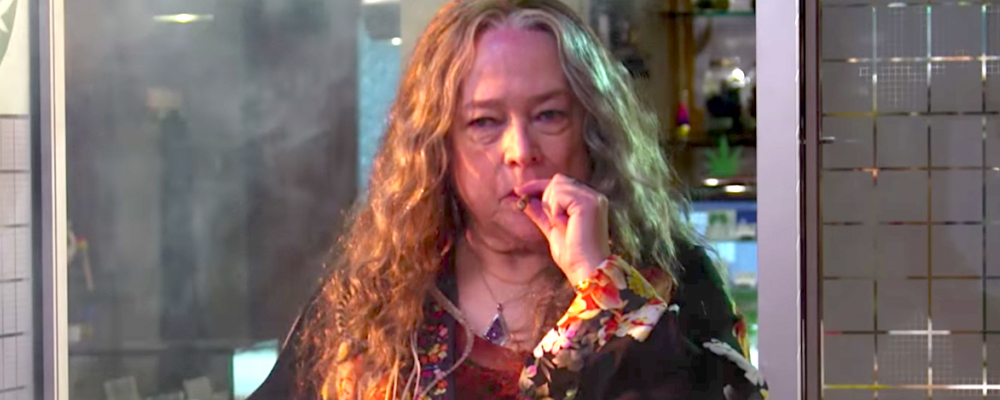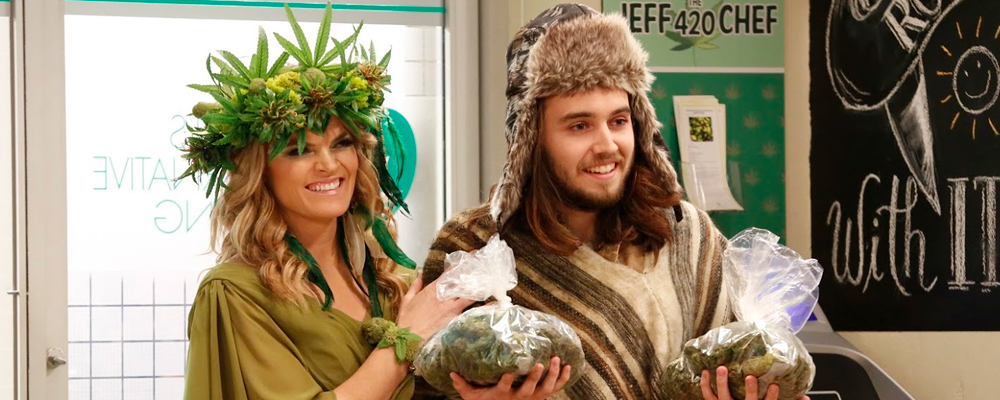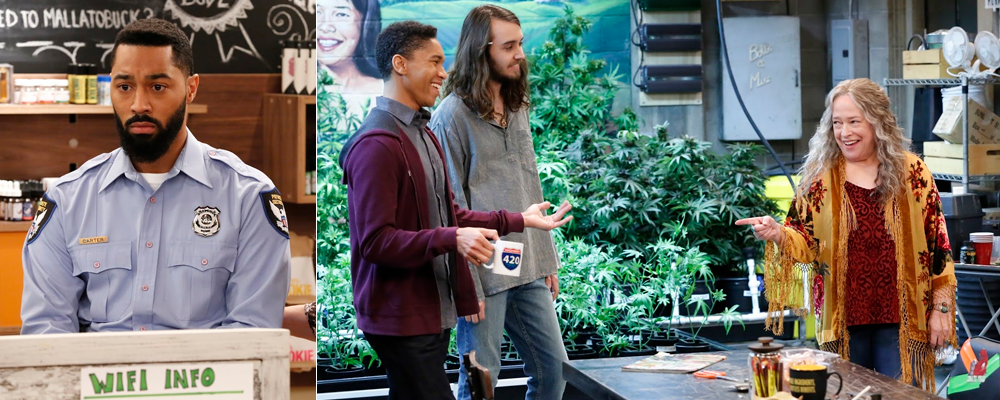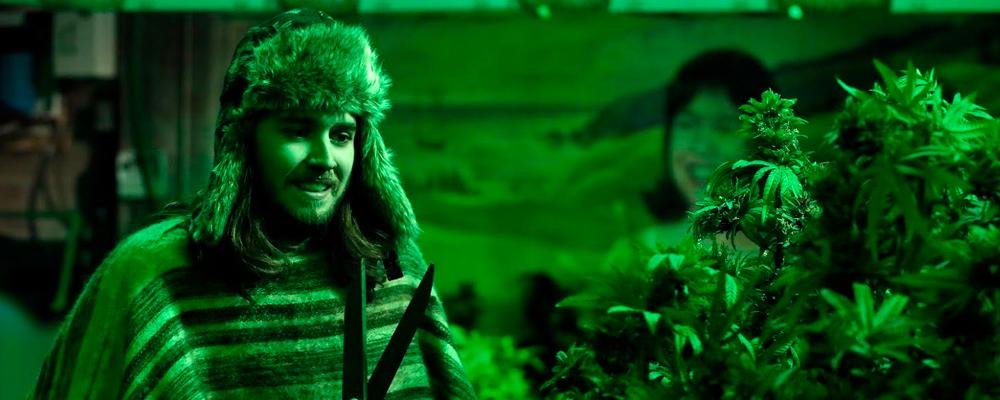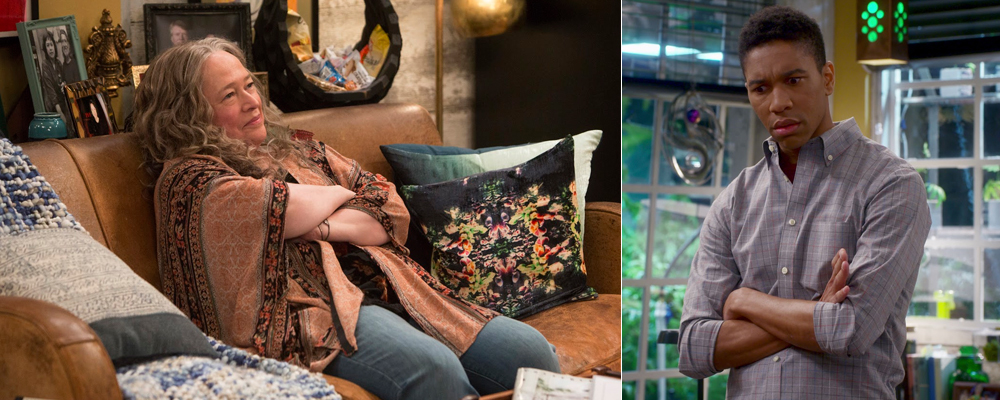Netflix’s Weed-Centric Series ‘Disjointed’ Is All Seeds and Stems
Zack Hillman
Even for its comedy programming, Netflix has built its reputation off the concept of “binge-ability”: the joy of watching several episodes and sometimes even entire seasons of a series in a single sitting. Not surprisingly, the earliest shows to benefit from streaming services were serialized stories with in-depth character studies and jokes that ranged from subtle to outlandish, but that all had massive re-watch appeal. Think “Arrested Development” or “The Office” in the comedy realm.
More mainstream-oriented, lighthearted, episodic fare has no doubt done fine on streaming services, but these are probably better suited to syndication. There, the audience basically has some time to kill and doesn’t mind plugging in because the jokes and characters always come from the same place. Think “Two and a Half Men” and “The Big Bang Theory,” where it doesn’t really throw audiences off if Sheldon is dating Amy in one episode and then not dating her in the next, because Sheldon is always Sheldon. In short, these two strains of televised comedy cater to entirely different watching patterns, making it difficult for many series to crossover from syndication to streaming and vice versa.
Which leads us to the ponderous case of “Disjointed,” the latest multi-camera floating timeline romp from Chuck Lorre, which debuts Aug. 25 on Netflix instead of his usual home base of CBS. Essentially to stoner culture what “The Big Bang Theory” is to nerd culture, the show focuses on Ruth Whitefeather Feldman (Kathy Bates), a lifelong marijuana rights activist who opens a legal dispensary in L.A. Her son Travis (Aaron Moten) – who recently graduated from business school and wants to turn Ruth’s dispensary into the “Walmart of cannabis” – is there to help her out along with a host of other “budtenders” and potheads who are more or less perpetually baked.
With a premise already too edgy for the networks, the show takes further advantage of its existence on Netflix by dropping copious F-bombs and sparking a doob in pretty much every frame. Buckle up, Lorre and co. seem to be warning us, this isn’t your average sitcom. Well, that’s true in every sense, except for the ones that matter. Four-letter words and drug culture jokes are basically window dressing for a show that plays it as safe as possible while completely missing the mark at every turn.
The first thing that’s likely to bemuse viewers is the canned laughter. Already an oddity for a Netflix series, the laugh tracks are deployed during unfunny moments so frequently that they’re rendered completely ineffective. This is especially irksome whenever Elizabeth Ho’s character Jenny speaks to her parents on the phone in Chinese. I’m not exaggerating – the apparent “joke” is that there are other people in the world who speak other languages that sound different than the main language we speak in America. Couple this with the fact that she introduces herself in the first scene as the “tokin’ Asian” (har har), and the blatant racism is hard to explain away.
Even more strained are the show’s ham-fisted attempts at drama. The most obvious example is the dispensary’s security guard, Travis (Tone Bell), who served in Iraq and suffers from PTSD. Instead of treating this disorder with the subtlety that it deserves (or just letting the actor… I don’t know, act?) the show opts instead to portray his post-traumatic episodes with bizarre and psychedelic animated vignettes set to slam poetry. This is the most drastic and confusing example, but even when the show does take advantage of Bates’ range with a heart-to-heart moment, it’s usually wafted out of the room with a quick one-liner about how she wasn’t paying attention.
And that’s the crux of the show’s tonal problems – it wants it both ways. It has all the trappings of a carefree frolic in Stonerland, yet constantly pleads an already fairly well-established case that marijuana has serious medicinal applications. Perhaps these pleas wouldn’t feel so contrived if the show’s writers didn’t continuously return to the well of worn-out stoner stereotypes long after the bucket has begun to come up empty. We get it: pot makes people confused and hungry. In the end, “Disjointed” haplessly navigates this uncomfortable middle passage – too rowdy and profane for network TV, yet too neutered and predictable to be as profound as it thinks it is. For a show that makes such a big production out of being on Netflix with its profanity and subject matter, it lacks the maturity to grasp the full potential that the platform offers and, worse, the depth to talk about these subjects without coming off like snickering teenagers.
“Disjointed” season one begins streaming Aug. 25 on Netflix.

